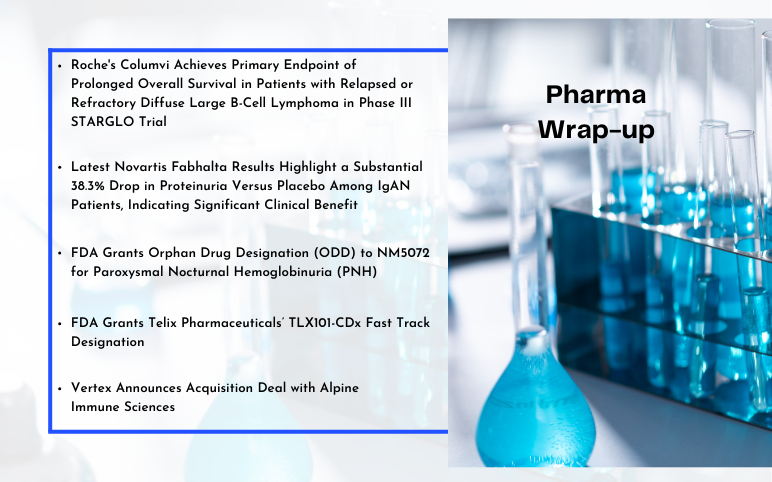EU recommends the use of Imbruvica for two new indications
The Janssen Pharmaceutical has received the approval for its drug Imbruvica (ibrutinib) from the European Commission (EC). Ibrutinib is a first-in-class targeted therapy, which inhibits the function of Bruton’s tyrosine kinase (BTK).
Jointly developed and commercialized by Janssen Biotech, and Pharmacyclics LLC, an AbbVie, Imbruvica has been approved chronic lymphocytic leukaemia (CLL) and Waldenström’s macroglobulinemia (WM). This includes the use of ibrutinib in combination with obinutuzumab in adult patients with previously untreated chronic lymphocytic leukaemia (CLL) and the use of ibrutinib plus rituximab for the treatment of adult patients with Waldenström’s macroglobulinemia (WM). In WM, the decision was based on data from the Phase 3 iNNOVATE (PCYC-1127) study, published in the New England Journal of Medicine.
According to the American Cancer Society’s, the estimated number of new cases of chronic lymphocytic leukaemia (CLL) in 2018 was reported to be around 20,940 cases, which is about one-quarter of the new cases of leukaemia.
Key players, such as Acerta Pharma, Beigene, TG Therapeutics, etc., are involved in developing therapies for the treatment of Chronic Lymphocytic Leukemia. Acalabrutinib (Acerta Pharma), Zanubrutinib (Beigene), Ublituximab (TG Therapeutics), and along with other compelling treatment options in the clinical trials is expected to increase the overall Chronic Lymphocytic Leukemia market size.
Pharming in-licenses Novartis’s orphan drug
Pharming NV has brought an exclusive license to CDZ173 for Euro 17.9 Million upfront to Novartis AG. CDZ173 is a late-stage drug for the treatment of Activated Phosphoinositide 3-kinase Delta Syndrome (APDS), which is an ultra-rare, debilitating primary immune deficiency. The deficiency impairs the immune system decreasing the number of white blood cells (lymphopenia), particularly B cells and T-cells.
At present, there is no efficient treatment available for PIK3CD overactivity, which occurs approximately 1-2 per million. Novartis’s lead drug CDZ173, which will be launched in the year 2022 will prove to be beneficial for the patients suffering from Activated Phosphoinositide 3-kinase Delta Syndrome.
Sonnet BioTherapeutics agrees to acquire Relief Therapeutics
Sonnet BioTherapeutics has announced the acquisition of with Relief Therapeutics Holding SA. The acquisition will help in the development of atexakin alfa. Atexakin alfa is a low-dose formulation of IL-6 (interleukin-6), has successfully completed Phase I trials. The drug is a cytokine with pleiotropic function in various organs and tissues.
The agreement has taken place via a share exchange transaction, which includes the payment to Relief of 7,111,947 common shares of Sonnet. Upon the completion of the acquisition, Sonnet will commence the development of SON-080 for Chemotherapy Induced Peripheral Neuropathy (CIPN) extendable to other neuropathies like Diabetic Neuropathy as well.
The CIPN market size depends entirely on the type of nerve damage, symptoms, and location. Currently, there is no approved therapy for CIPN treatment. The current therapeutic landscape of CIPN
worldwide is dependent on off-label therapies, used to reduce the symptoms in CIPN patients.
Many companies are aggressively working towards the development of targeted therapies for CIPN such as PledOx/Solasia, WEX Pharmaceuticals, Asahi Kasei, MediciNova, Achelios Therapeutics, Esteve, ChromaDex, Apollo Endosurgery (Lpath), Hoffmann-La Roche, Midatech/DARA, Lee’s Pharmaceutical Limited, Novartis, Relief Therapeutics and others. The Chemotherapy-Induced Peripheral Neuropathy market size in the G8 Countries is expected to increase at a CAGR of 2.94% for the study period (2016-2027).









-Agonist.png)


